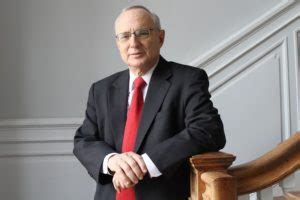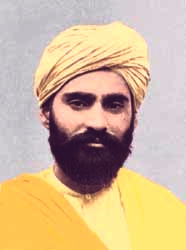A Quote by Linda Hogan
It is a paradox in the contemporary world that in our desire for peace we must willingly give ourselves to struggle.
Related Quotes
We must relinquish our passive observation of the world outside; we can open the door to the world we want. In understanding ourselves, we come to understand the world. In allowing ourselves to heal, we become the healers of the world. In praying for peace, we become bringers of peace. Thus we actualize the power within us to remedy the psychic wounds of humanity.
Militarists say that to gain peace we must prepare for war. I think we get what we prepare for. If we want a world where peace is valued, we must teach ourselves to believe that peace is not a ‘utopian vision’ but a real responsibility that must be worked for each and every day in small and large ways. Any one of us can contribute to building a world where peace and justice prevail.
The question of real, lasting world peace concerns human beings, so basic human feelings are also at its roots. Through inner peace, genuine world peace can be achieved. In this the importance of individual responsibility is quite clear; an atmosphere of peace must first be created within ourselves, then gradually expanded to include our families, our communities, and ultimately the whole planet.
We often see people every day searching in the wrong places for the things they desire. Too many of our fellow humans try to find peace and happiness in drugs, alcohol, and sensual excitement. And it doesn't work. If we desire peace, the first place to look is within ourselves. Peace isn't an external condition as much as an internal context.
At this crucial crossroads of history, we join to call on the world to recognize that violence begets violence; that nuclear proliferation benefits no one; that we can, we will, and we must find other ways to protect ourselves, our nations and our future: for it is not sufficient to have peace in our time, but, instead, we must leave a peaceful world to our children.
We can never obtain peace in the world if we neglect the inner world and don't make peace with ourselves. World peace must develop out of inner peace. Without inner peace it is impossible to achieve world peace, external peace. Weapons themselves do not act. They have not come out of the blue. Man has made them. But even given those weapons, those terrible weapons, they cannot act by themselves. As long as they are left alone in storage they cannot do any harm. A human being must use them. Someone must push the button. Satan, the evil powers, cannot push that button. Human beings must do it.
Are not our desires inseparably intertwined with the continuation of life? Even the idea of eliminating desire is fruitless. The desire to eliminate all desire is still itself a desire. How can we find release and peace by replacing one desire with another? Surely we shall find peace not by eliminating desire, but by finding its fulfillment and satisfaction in the One who created it.
I beg Our Lord, Monsieur, that we may be able to die to ourselves in order to rise with Him, that he may be the joy of your heart, the end and soul of your actions, and your glory in heaven. This will come to pass if, from now on, we humble ourselves as He humbled Himself, if we renounce our own satisfaction to follow Him by carrying our little crosses, and if we give our lives willingly, as He gave His, for our neighbor whom He loves so much and whom He wants us to love as ourselves.
Elric knew that everything that existed had its opposite. In danger he might find peace. And yet, of course, in peace there was danger. Being an imperfect creature in an imperfect world he would always know paradox. And that was why in paradox there was always a kind of truth. That was why philosophers and soothsayers flourished. In a perfect world there would be no place for them. In an imperfect world the mysteries were always without solution and that was why there was always a great choice of solutions.




































